
THREAD: american meddling eastern europe dangerous
LifeLine™ Media threads use our sophisticated algorithms to construct a thread around any topic you want, providing you with a detailed timeline, analysis, and related articles.
News Timeline


US CEASEFIRE DEAL Stops Dangerous India-Pakistan Clash
— Quick action from the US, led by Vice President Vance and Secretary Rubio, brought an end to the worst fighting between India and Pakistan in years. Pakistan’s Prime Minister called it a “diplomatic breakthrough.” The new agreement hopes to calm tensions and start real peace talks. Both countries fired advanced missiles during the conflict. With both sides having nuclear weapons, many feared things could spiral out of control. Washington’s push for peace was key in stopping the violence. POLAND ERUPTS: MASSIVE ANGER OVER ILLEGAL IMMIGRATION SHAKES WARSAW
Huge crowds filled Warsaw as Poles protested illegal immigration from Russia and Belarus. Nationalist leader Karol Nawrocki is demanding tough border controls before next week’s election. Marchers say migrants should stay home and blame foreign powers for causing chaos. Many Polish voters now see immigration as a threat to their country’s safety. TRUMP DEMANDS 20,000 POLICE TO FIGHT NATIONWIDE CHAOS
Former President Donald Trump has called for 20,000 police officers to restore order across America after days of unrest. Chicago was hit hard by protests following a major bank robbery. Trump says only strong action will keep Americans safe on their own streets.
US-UKRAINE POLICY Shocker: Ambassador Quits as Trump Team Demands Results
— Bridget Brink, the US Ambassador to Ukraine since 2022, has stepped down. The State Department confirmed her exit as the Trump administration signals a new direction in dealing with Ukraine.
The White House is now pushing for stronger talks with Russia. Military and economic aid will be used as bargaining chips instead of blank checks. Officials say they want real progress, not endless promises.
A recent minerals deal between the US and Ukraine shows this new approach in action. Trump’s tough stance on trade and law-and-order is shaping every decision on foreign policy.
With Brink gone, America’s role in Ukraine is changing fast. The Trump team wants peace through strength — using smart deals instead of getting stuck in another forever war.
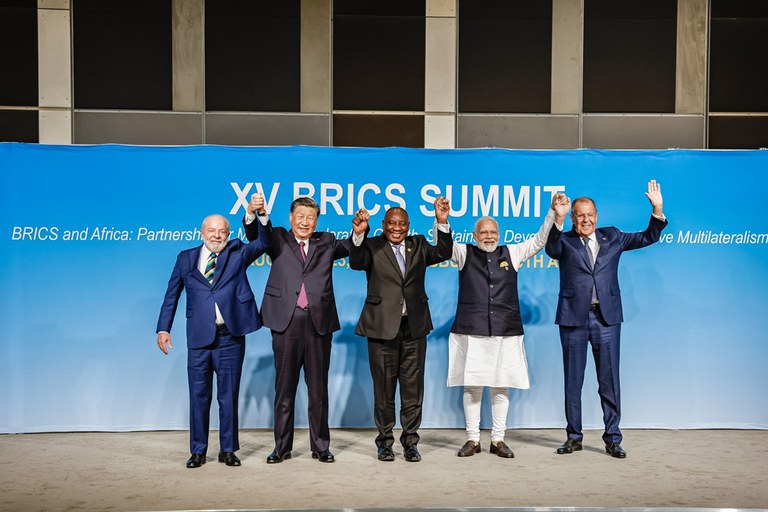
BRAZIL’S Bold Gamble: Global Power Play Ignites Trade WAR Fears
— Brazil is grabbing the world’s attention as it gets ready to host the BRICS summit in July 2025. President Lula da Silva is leading a busy schedule, with plans for a regional meeting in Honduras, an official visit to France, and support for peace talks between Russia and Ukraine during his trip to Portugal.
These moves come at a tense moment. President Trump has warned he may slap new tariffs on Russian oil if there’s no deal over Ukraine. Meanwhile, China is trying to pull Latin America closer through its CELAC forum, hoping to boost its influence in the region.
Brazil’s active diplomacy shows it wants a bigger role on the world stage. The country hopes to act as mediator between major powers like the US, Russia, and China while pushing for stronger ties in Latin America.
With trade wars looming and global tensions rising, Brazil’s bold approach could shape how these big issues play out — or backfire if things go wrong.
US Calls Out RUSSIA as a Major PEACE Blocker
— The United States has called Russia the main “impediment” to peace in ongoing conflicts. This marks a big shift in U.S. foreign policy as tensions rise and Russia rejects a ceasefire call. The announcement could greatly affect diplomatic efforts and talks in the region.
America’s new stance on Russia raises questions about future diplomacy and possible tension escalation. The push for a ceasefire highlights struggles in conflict zones worldwide, showing the challenges of international diplomacy.
In other news, the Securities and Exchange Commission (SEC) reported a major financial move by Capital Asia Investments Pte Ltd. from Singapore on March 12, 2025. The company sold 123,923,085 shares from Bangchak Corporation Public Company Limited, marking an important event in finance.
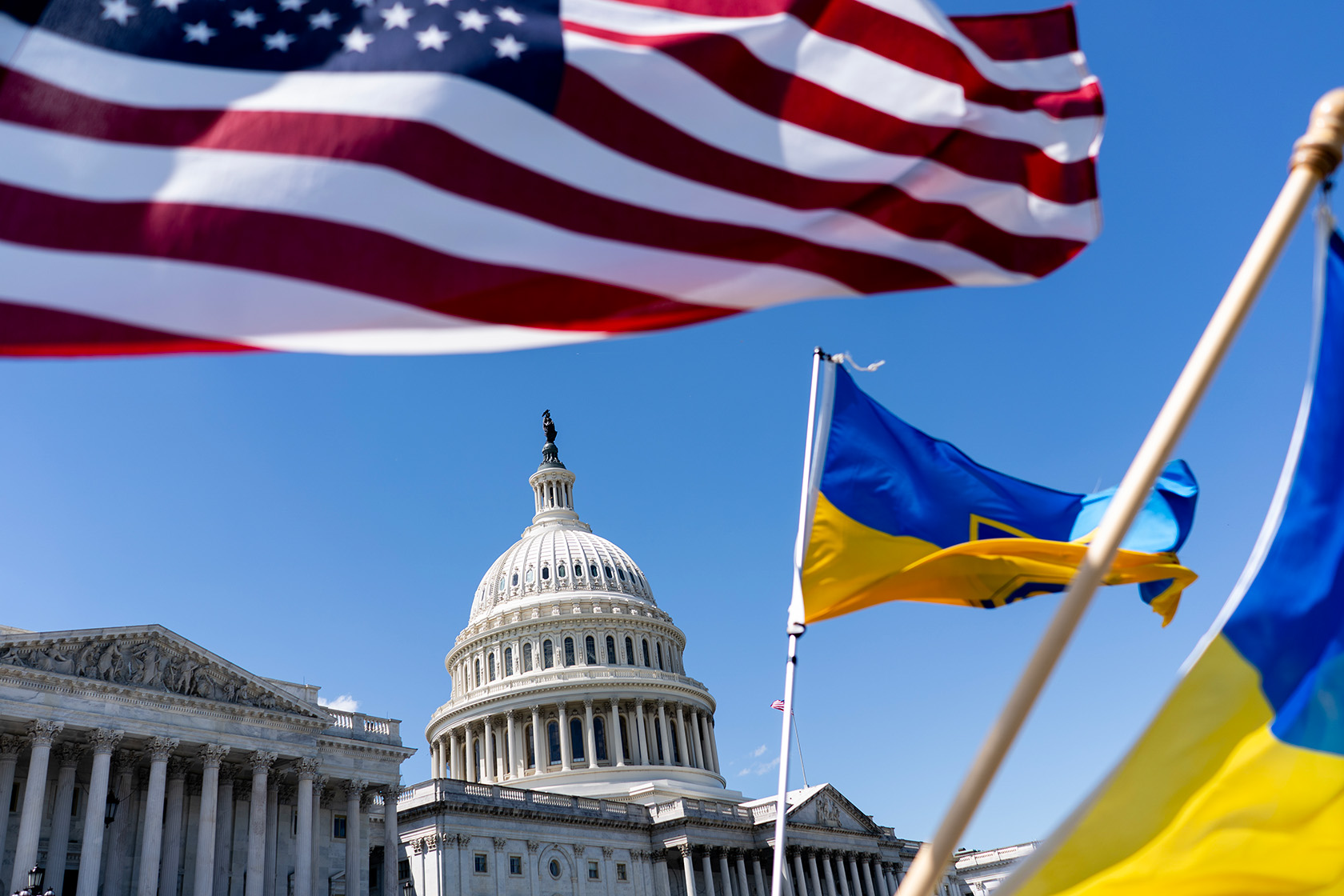
AMERICAN MEDDLING in Eastern Europe: A Dangerous Game?
— The tensions in Ukraine, Georgia, and Romania show the consequences of American foreign policy. Analysts say U.S. involvement has caused instability in these countries.
Critics highlight the fragile situation as proof of the negative effects of past interventions. Discussions about sovereignty and security concerns are growing in Eastern Europe.
These events raise questions about America’s role in global politics and its impact on regional stability. The situation highlights the need for careful foreign relations strategies.
EUROPEAN UNION in Turmoil: Defense Woes Under Trump
— European Union leaders rushed to Brussels for emergency talks, worried about U.S. support under President Donald TRUMP. They focused on boosting European security and protecting Ukraine. Friedrich Merz, Germany’s likely next chancellor, and summit chairman Antonio Costa discussed quickly strengthening Europe’s defenses.
Merz pushed for easing Germany’s debt rules to boost defense spending. Meanwhile, French President Emmanuel Macron proposed using France’s nuclear capabilities to protect Europe from Russian threats. This is a big change since Trump began disrupting U.S.-Europe security ties.
Danish Prime Minister Mette Frederiksen stressed the need for more defense spending across Europe, a big shift from past budget priorities where military funding was low. Macron promised that EU countries would increase military budgets and work together on advanced weapon production in Europe.

US SHOCKS World by BACKING Russia at UN: A Controversial Move
— On March 6, 2025, the United States marked the third anniversary of Russia’s invasion of Ukraine by siding with Moscow at the United Nations. The U.S. joined a group of autocratic nations opposing a resolution condemning Kremlin aggression. This resolution, introduced by Ukraine, passed with support from 93 nations while 65 abstained from voting.
The resolution condemns the February 2022 invasion and holds Russia responsible for starting it. Ukrainian Deputy Foreign Minister Mariana Betsa urged nations to promote “just and lasting peace.” The vote signifies a diplomatic setback for the Trump administration, which had encouraged European allies to oppose it.
The Trump administration proposed its own resolution that avoided directly blaming Russia for the war. European nations revised this proposal to highlight “the full-scale invasion” by Russia, leading to U.S. abstention on its own measure.
In aligning with Russia and allies like North Korea and Belarus, Ambassador Dorothy Shea defended the U.S.'s focus on ending the war rather than assigning blame. She noted past resolutions failed to stop ongoing suffering in Ukraine and beyond.

US INTEL CUTS to Ukraine Spark Fears of Abandonment
— The UNITED STATES has stopped sharing intelligence with Ukraine, causing worry among European allies. President Macron warned Europe to prepare for a future where the US might not be as supportive. This change comes amid the ongoing conflict between Ukraine and Russia.
In response, EU members are holding emergency talks to strengthen support for Ukraine. They aim to address changing dynamics and ensure continued backing for Kyiv in its fight against Russian aggression.
Meanwhile, severe weather during Mardi Gras destroyed a recently rebuilt camp in Plaquemines Parish, Louisiana. Owner Christian Amedee believes a tornado caused the damage, adding more hardship after reconstruction efforts.
In other news, former President Trump issued a stern warning to Hamas about Israeli hostages in Gaza. He suggested dire consequences if civilians held hostages during negotiations in Qatar aimed at resolving the conflict and securing hostage releases.
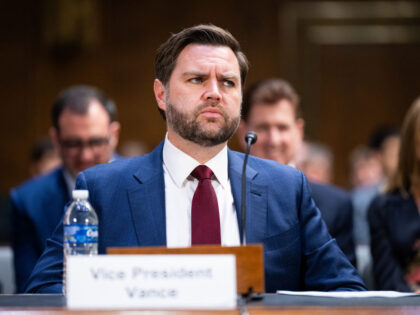
Vance’s BOLD Remarks on Europe’s Military READINESS Stir Controversy
— Senator J.D. Vance sparked a debate with his comments on European military contributions to Ukraine’s security. Speaking on Fox News, he emphasized economic support over troop deployments from countries with limited combat experience. Some viewed his remarks as criticism of Britain and France, despite their active military roles in recent conflicts.
Vance clarified his stance, denying any specific mention of the UK or France while acknowledging their historical alliance with the U.S. He expressed skepticism about smaller European militaries’ effectiveness due to their lack of battlefield experience and equipment concerns.
Highlighting disparities in defense spending among NATO members, Vance noted that while the U.S., UK, France, and Germany invest heavily in defense, other European nations contribute significantly less relative to their GDPs. Countries like Spain and Belgium spend a fraction compared to larger allies, raising questions about fair burden-sharing within NATO.
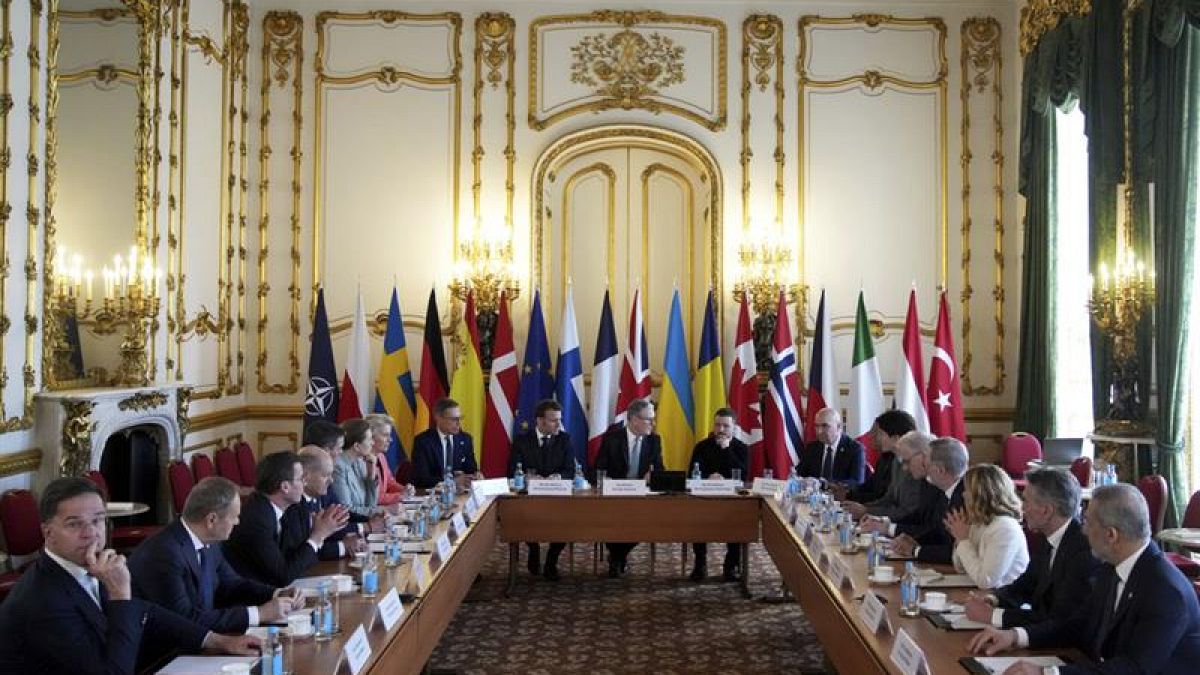
EUROPE’S Bold Move: Seizing Control in Ukraine Talks
— European leaders are eager to steer Ukraine-Russia negotiations. At a London summit, British Prime Minister Keir Starmer stressed the importance of this moment for the West. Their aim is to unify Europe’s stance as Kyiv-Washington relations worsen.
Tensions rose after Ukrainian President Zelensky met with former U.S. President Donald Trump, causing concern across Europe. The meeting reportedly alarmed European leaders who fear a change in U.S. policy could disrupt ongoing efforts in the region.
Europe wants to present a united strategy that prioritizes regional stability and security over outside influences from across the Atlantic. This move shows Europe’s intent to assert its influence and leadership in resolving the conflict effectively and independently.

“TRUMP’S Bold Peace Plan with Russia and Ukraine Stirs EU Fears”
— European leaders are worried about President Trump’s efforts to broker peace between Ukraine and Russia. The EU’s top diplomat claims Russian President Putin is not interested in peace. Trump mentioned having “very good talks with Russia” but did not share details on any progress made.
NATO allies and long-time U.S. partners are frustrated by Trump’s remarks on Ukraine, seeing them as an attempt to improve ties with Moscow. EU High Representative Kaja Kallas stressed the need for dialogue but noted Russia’s reluctance for peace.
Trump held his first Cabinet meeting, stating NATO membership was not an option for Ukraine, which could change the conflict’s dynamics. Kallas urged more economic and political pressure on Russia to strengthen Ukraine both militarily and diplomatically.
As Trump and Ukrainian President Zelenskyy work towards a minerals deal, there is hope it might lead to ceasefire talks, though doubts linger about its effect on achieving lasting peace.
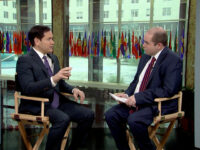
RUBIO SOUNDS Alarm on Russia-China Threat
— Senator Marco Rubio is sounding the alarm about Russia’s growing reliance on China. He warns this could lead to two nuclear powers uniting against the United States. Rubio stresses that U.S.-China relations will shape the century and highlights the need for diplomatic ties with both nations. A permanent Russia-China alliance, he says, threatens global stability and American interests.
While in Panama, Rubio convinced its government to leave China’s Belt and Road Initiative. He stressed the Panama Canal’s strategic importance for U.S. trade and voiced concerns over Chinese control of key ports there. Criticizing past decisions that let China gain influence in this vital region, he called for pro-American partnerships in Latin America.
Rubio praised President Trump’s efforts to counter China’s global influence through projects like the India-Middle East-Europe Economic Corridor (IMEC). This initiative aims to create new trade routes, reducing dependence on China’s economic power. Trump’s strategy strengthens alliances worldwide, especially where Chinese debt diplomacy is a threat, ensuring America’s interests are protected globally from a strong position.

ELECTION SECURITY at Risk: Federal Cuts Stir Fears
— The dismantling of federal efforts to monitor election interference has alarmed national security experts and lawmakers. This move could open doors for foreign meddling in future elections. Experts warn that reduced monitoring capabilities present a vulnerability to U.S. election integrity.
Some lawmakers are urging immediate action to restore monitoring frameworks, aiming to prevent potential interferences. They stress the need for bipartisan support to reinstate oversight and security measures. Voter concerns about election integrity are rising, especially after past incidents of foreign interference.
Government officials advocate for enhanced cybersecurity measures to protect electoral systems from threats. Lawmakers plan hearings on these changes, seeking expert testimonies on the implications for national security and democratic processes.
Stay tuned as this story develops further with ongoing updates and reactions from key stakeholders in Washington D.C.
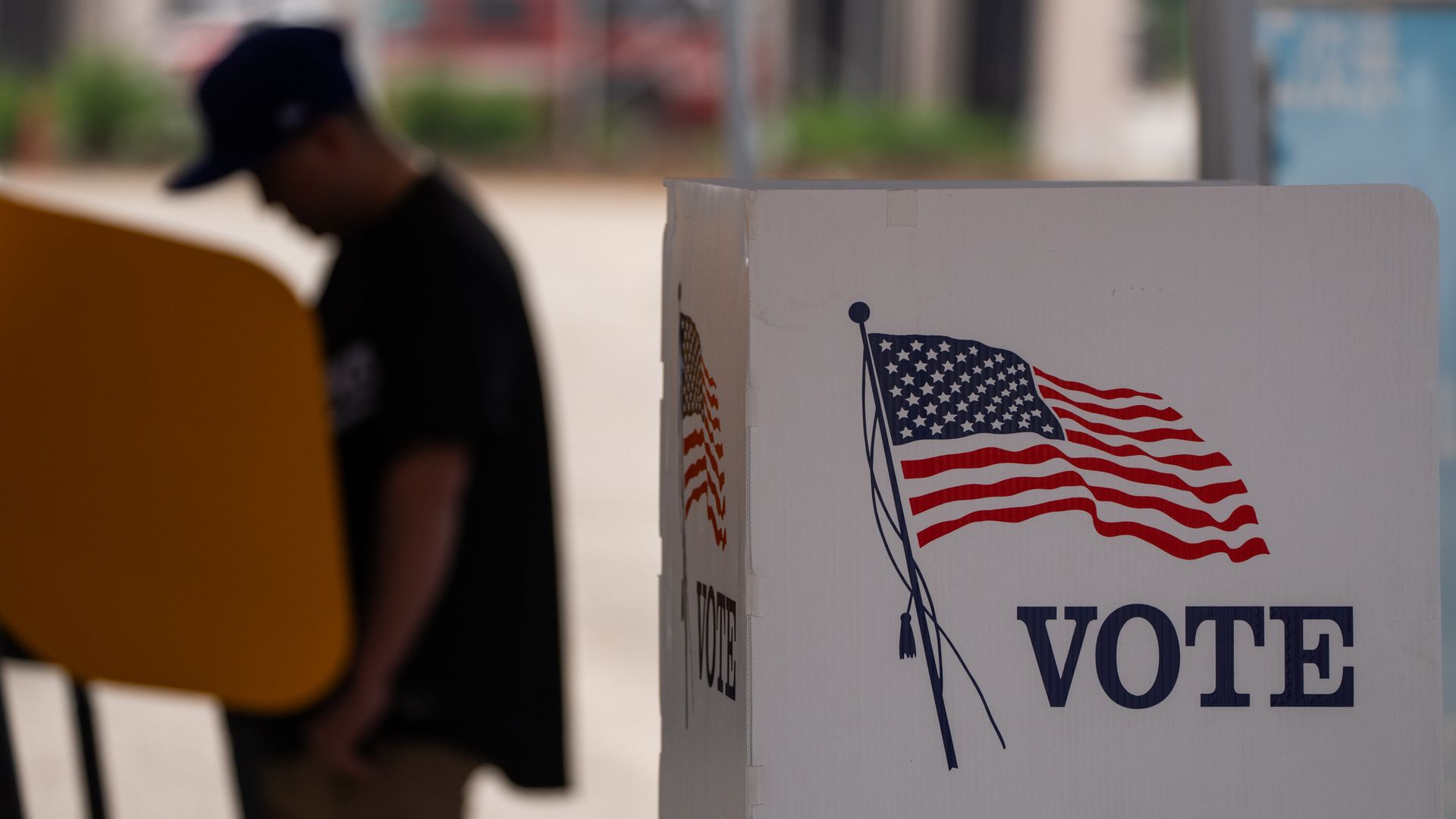
FEDERAL Election MONITORING Cuts: Security Risks Soar
— The dismantling of federal election monitoring efforts has sparked concern among lawmakers and national security experts. Critics argue this move opens the door for foreign interference in upcoming elections. The lack of strong oversight could lead to vulnerabilities being exploited, prompting bipartisan talks on restoring effective monitoring mechanisms.
Democratic officials call the decision irresponsible, claiming it threatens democracy by reducing transparency in election processes. They urge a recommitment to safeguarding electoral integrity. Republican leaders are divided, with some supporting reduced federal involvement to limit overreach.
This development has raised alarms and prompted congressional hearings to assess the impact on election security. Various stakeholders call for immediate action to restore monitoring capabilities against potential foreign manipulation. As critical electoral events approach, the need for reinstating protective measures becomes clear.

ROMANIAN ELECTION Shock: Russian Interference Sparks Outrage
— Calin Georgescu, a populist candidate, was leading Romania’s election before it was nullified over alleged Russian interference. He gained support by embracing conservative values and criticizing left-wing figures like George Soros. Despite modest campaign spending, Georgescu’s social media presence drew in religious conservatives and those frustrated with government corruption.
Romania’s Constitutional Court canceled the election after intelligence reports accused Russia of using fake TikTok accounts to back Georgescu. The reports also claimed a cyberattack on the election system. These allegations led to an investigation into “electoral crimes,” sparking widespread protests from Georgescu supporters who believed the election was stolen.
Protesters flooded the streets, waving Romanian flags and demanding their votes be counted in a second round of elections. They denounced President Klaus Iohannis’s administration as illegitimate and called for his arrest, labeling government officials as “traitors.” The political unrest underscores deep divisions within Romania over foreign influence and electoral integrity.

— Trump hints at military action to secure Panama Canal and Greenland The president-elect emphasized the importance of US control over both regions for national security, stating he won’t dismiss the use of force

EUROPEAN Allies RALLY to Defend Ukraine as Trump Era Looms
— London, Paris, and Warsaw are forming a core group to support Ukraine against Russia, anticipating changes in U.S. policy under a possible Trump presidency. Donald Trump hasn’t detailed his plans for ending the conflict but has mentioned options like land swaps or demilitarized zones. These strategies clash with Ukraine’s goal of total victory over Russia.
British Prime Minister Sir Keir Starmer met French President Emmanuel Macron in Paris to discuss defense matters and support for Ukraine. They want outgoing U.S. President Joe Biden to allow Ukraine’s use of long-range missiles against Russia before any Trump policy shift. The U.S., however, worries this could escalate tensions with Moscow significantly.
A UK government source stressed the urgency of maximizing efforts before Trump’s potential presidency begins on January 20th. Starmer and Macron aim to strengthen Ukraine’s position as winter nears and after Trump’s re-election announcement days ago, despite financial challenges faced by both the UK and France amid budgetary issues.
Poland, led by Prime Minister Donald Tusks, is also increasing its role in this emerging anti-Trump alliance within Europe. Meetings between Polish leaders and European counterparts are planned to involve NATO members from Scandinavia as well.

RUSSIA’S Dangerous Plot: Planes to US and Canada at Risk
— Western security officials suspect Russia is plotting to plant EXPLOSIVES on planes bound for the United States and Canada. Two incendiary devices ignited at DHL logistics hubs in Germany and England, triggering a multinational investigation. Intelligence agencies found electric massagers with flammable substances were used as a “test run” for Russian sabotage efforts.
Poland’s National Prosecutor’s Office arrested four suspects linked to the DHL hub fires, charging them with “sabotage or terrorist operations.” The suspects allegedly tested parcel transfer channels intended for North America. Authorities have not disclosed their identities or nationalities.
Pawel Szota, head of Poland’s foreign-intelligence agency, attributed the plot to Russian spies. He warned that any attack would mark a “major escalation” of Russia’s sabotage against Western nations. This revelation underscores rising tensions between Russia and Western powers amid ongoing geopolitical conflicts.

— Starmer: Putin Can End Ukraine War Anytime UK Labour leader Keir Starmer asserts that Russia initiated the conflict and can halt it at will, ahead of discussions with President Biden on lifting restrictions on Western weaponry for Ukraine
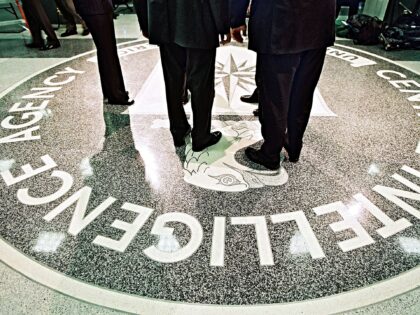
CIA and MI6 Chiefs WARN: Global Threats Looming
— The heads of the CIA and MI6 have issued a stark warning about global threats. They highlighted the war in Ukraine, sabotage in Europe, and rising tensions with China. “We saw the war in Ukraine coming,” they stated, emphasizing their role in alerting the international community.
They are actively working to disrupt Russia’s sabotage campaigns across Europe and address escalating conflicts like the Israel-Gaza situation. Counterterrorism efforts against ISIS are also a priority. The intelligence chiefs stressed that global stability is under threat like never before since the Cold War.
China’s rise is identified as the main geopolitical challenge of this century, prompting both agencies to reorganize their priorities accordingly. Russian intelligence activities were described as reckless, with recent incidents of sabotage and arson attacks on infrastructure in Europe being attributed to Moscow’s covert operations.;

— Russian Interference Allegations in UK Election Raise Alarm UK Minister Oliver Dowden expresses grave concern over Russian involvement in election, citing use of Facebook to boost Nigel Farage as a typical tactic from Moscow
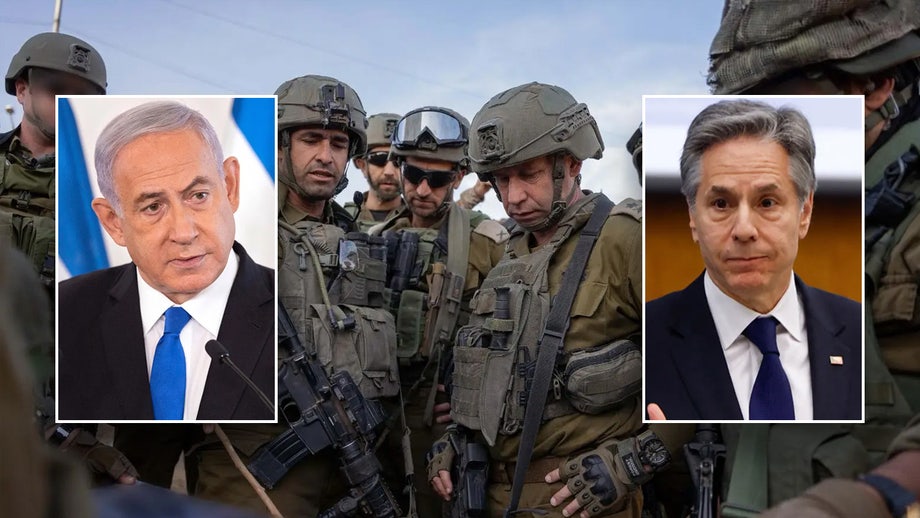
BIDEN HALTS Leahy LAW: A Risky Move for US-Israel Ties?
— The Biden administration recently paused its plan to apply the Leahy Law to Israel, sidestepping a potential complication for the White House. This decision has sparked intense discussions regarding the future of U.S.-Israel relations. Nick Stewart from the Foundation for Defense of Democracies has voiced strong criticism, labeling it as a politicization of security aid that could set a troubling precedent.
Stewart charged that the administration is overlooking crucial facts and fostering a damaging narrative against Israel. He argued that this stance could empower terrorist organizations by distorting Israeli actions. The public exposure of these issues, along with leaks from the State Department, points to political motives rather than genuine concerns, Stewart suggested.
The Leahy Law bars U.S. funding to foreign military units accused of human rights violations. Stewart called on Congress to scrutinize whether this law is being politically weaponized against allies like Israel during an election season. He stressed that any real concerns should be addressed directly and respectfully with Israeli officials, preserving the alliance’s integrity
By halting application of the Leahy Law specifically towards Israel, questions arise about consistency and fairness in U.S. foreign policy practices, potentially impacting diplomatic trust between these longstanding allies.

— Zelenskyy Prepared to Escort Donald Trump to Ukraine’s Front Line: Ukrainian President offers to show former US President the country’s conflict zones

— Trump’s NATO Comments Stir Political Storm, Russia Remains Silent Brief President Trump’s remarks about NATO ignite controversy, while Russia maintains silence amidst growing tensions

ISRAEL-HAMAS Conflict: The Rising Tensions and Shocking Russian War Crime Probes
— Defense reporter Mike Brest from the Washington Examiner recently delved into the intensifying Israel-Hamas conflict. He sat down with Magazine Executive Editor Jim Antle to discuss this escalating issue, which has seen a worrying increase in casualties in Gaza.
Brest didn’t stop there; he also shed light on ongoing investigations into potential Russian war crimes in Ukraine. This new development brings an added layer of complexity to an already strained global situation.
The persistent conflict between Israel and Hamas, along with Russia’s alleged misdeeds, is stirring unease across the globe. As these situations continue to evolve, they promise to have profound impacts on international relations and worldwide stability.

Video
BIDEN’S Border Policy Sparks Outrage As Migrant Surge Escalates
— President Biden’s border policy is facing intense scrutiny as the number of illegal crossings reaches record highs. Critics argue that the administration’s lenient stance has encouraged more migrants to attempt dangerous journeys. Republican lawmakers are calling for immediate action to secure the border.
“The situation is out of control,” said Senator Ted Cruz, emphasizing the need for stricter enforcement. Border Patrol agents report being overwhelmed by the influx, with facilities operating beyond capacity. The humanitarian crisis is escalating, putting immense pressure on local resources.
In response, the White House claims it is working on comprehensive immigration reform. However, many believe these efforts are too little, too late. The ongoing surge continues to fuel debate over national security and immigration policies.
As midterm elections approach, this issue could significantly impact voter sentiment. Republicans aim to leverage public frustration over border security failures to gain political ground. The coming months will be crucial in shaping America’s immigration future.

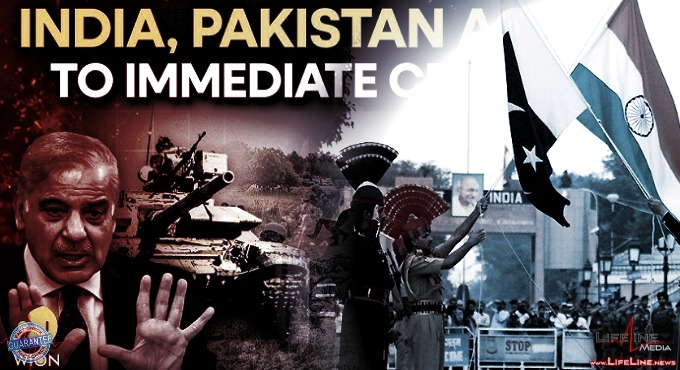
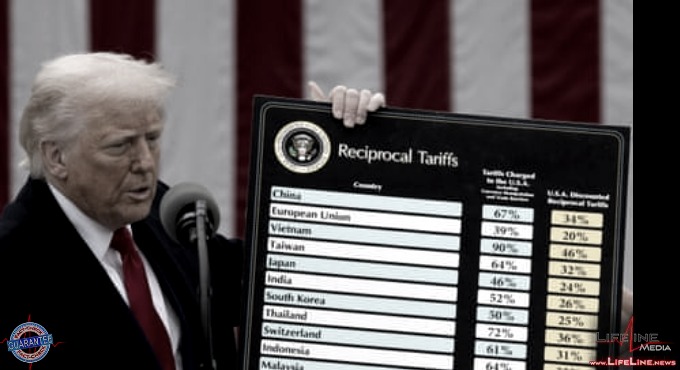
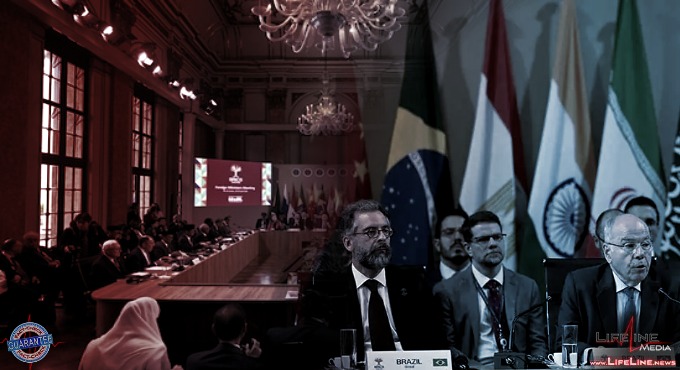

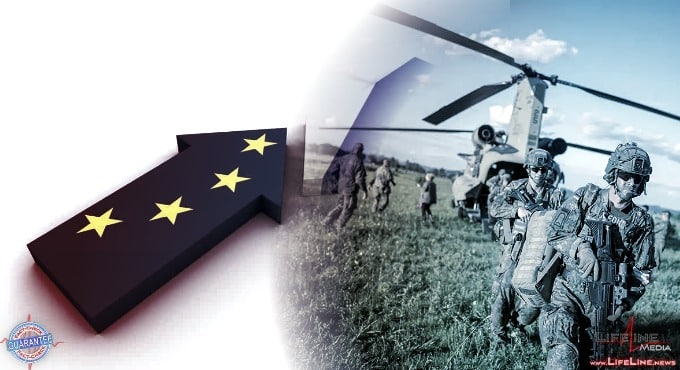
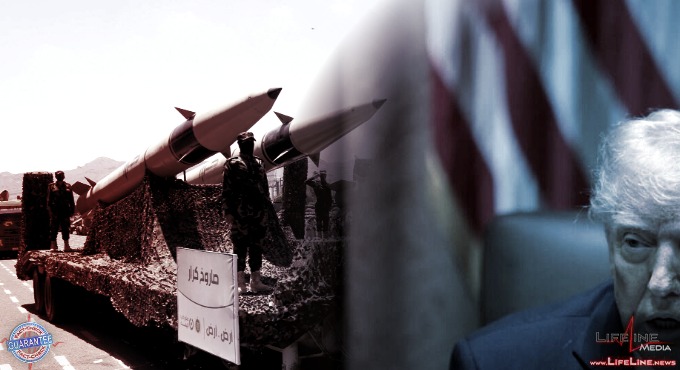

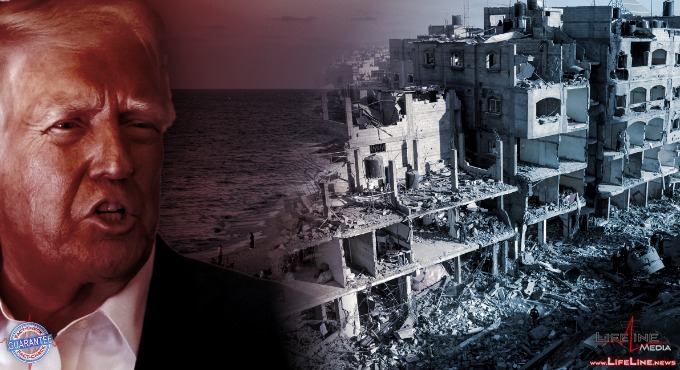
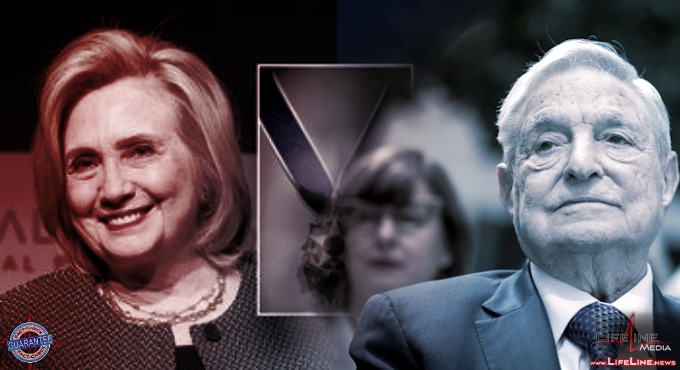

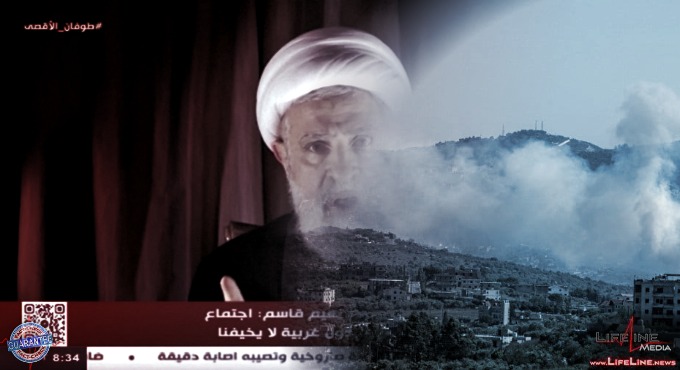



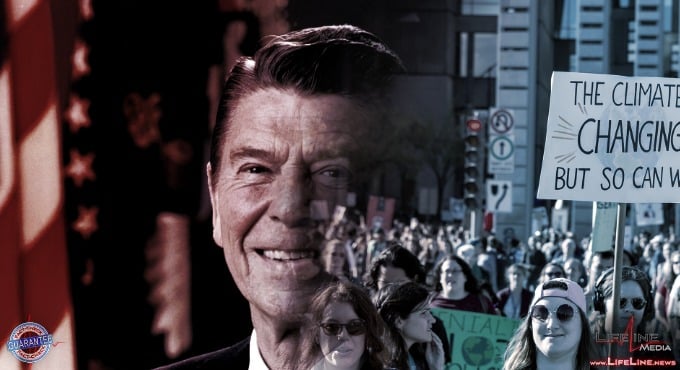

Social Chatter
What the World is SayingThe threat of one-party rule through unchecked migration isn’t hypothetical—it’s a calculated strategy. The previous administration’s open-border policies prioritized political power...
. . .As Secretary of State, I will continue to use every power at my disposal to protect the American people and defend our nation from foreign invasion.
. . .Banning the centrist AfD, Germany’s, most popular party, would be an extreme attack on democracy
. . .The Trump Ukraine mineral deal is a very good one for Ukraine. America has a vested interest in its security going forward. Putin now must think twice before taking more territory. It is also...
. . .Vladimir Putin must pay for the destruction he has caused in Ukraine. $300bn in frozen Russian assets sit in Western financial systems. If we don’t act, they could be handed back to Moscow...
. . .